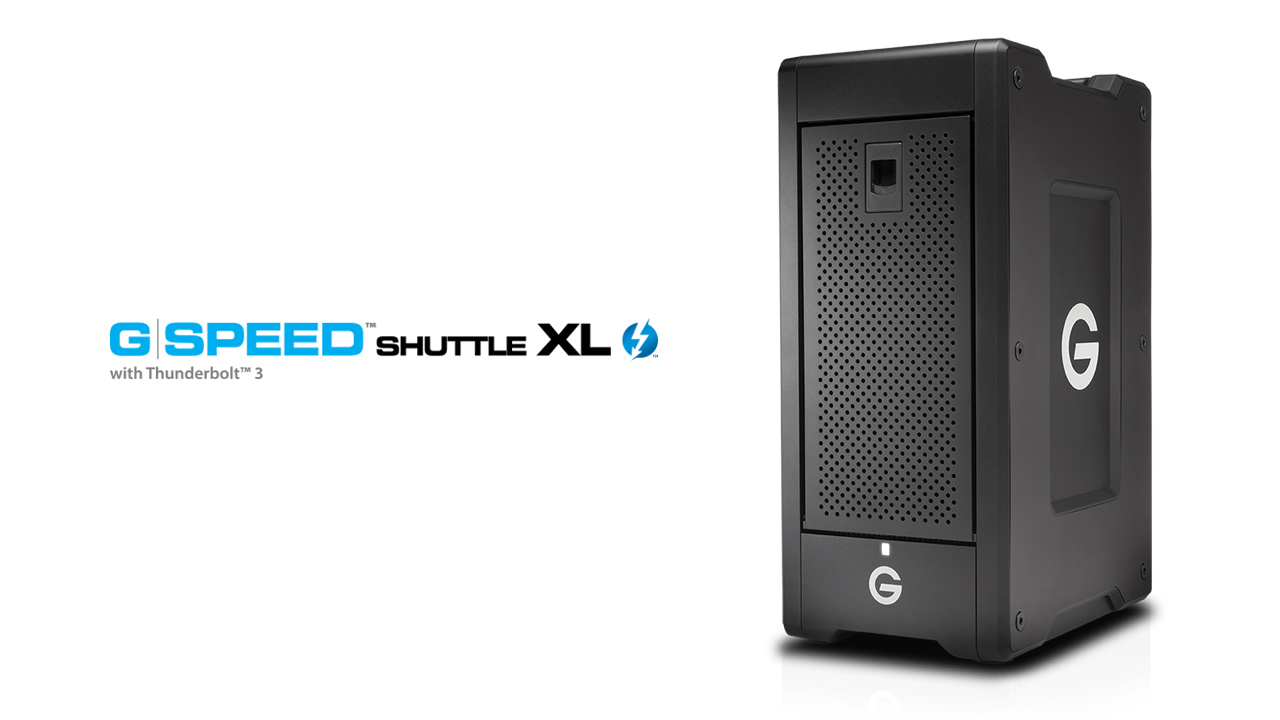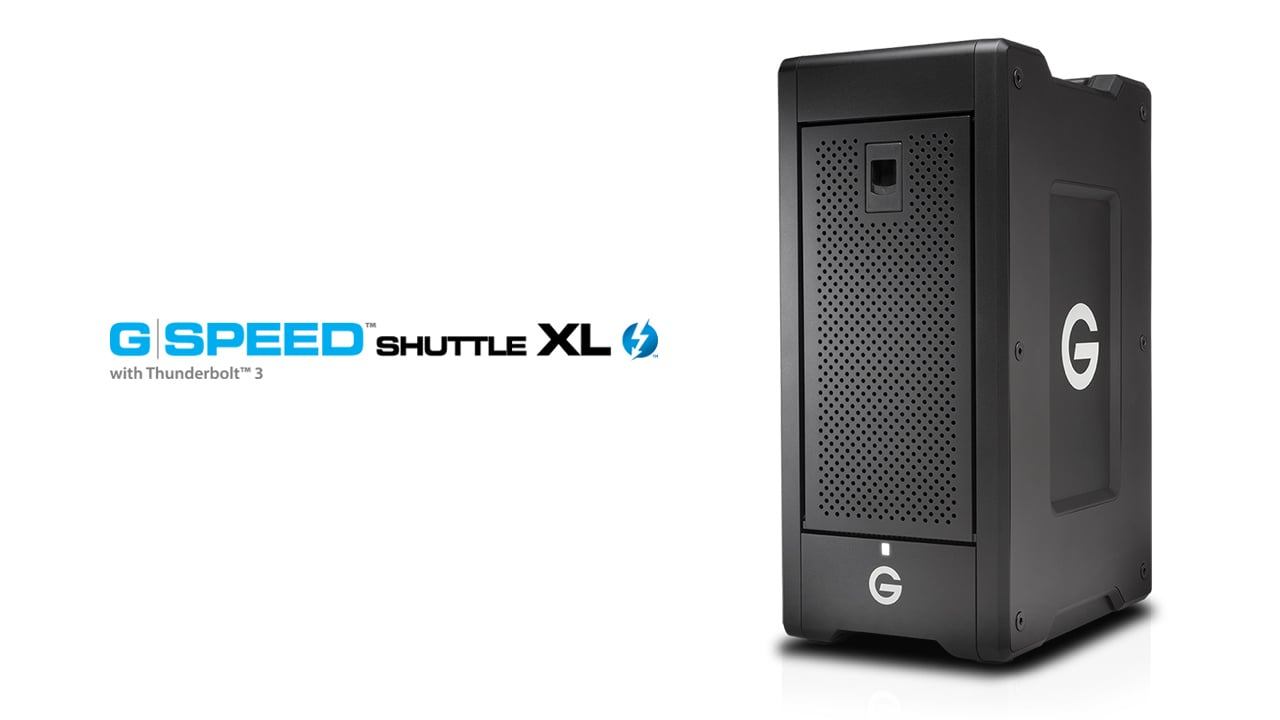

It's tempting to compare storage based only on size, capacity and speed. But there's much more to it than that. Take the G|SPEED SHUTTLE XL from G-Technology, for example. By Bas Goosens
When you're choosing storage, you have what seems like a million options. It's always tempting to narrow your choice down to speed, capacity and price. But there's much more to it than that.
For near-line storage (where you need to be able to access your material quickly but don't need to run multiple streams of 4K uncompressed for example) then you could choose slower drives and more of them. Conversely, if you need maximum performance for just the material you're working on at the time, then get the fastest drives you can afford.
But what about portability? When you add that into the equation, your choice is more limited. Especially since these days you're likely to want tens of terabytes actually on set. (Why? Because 4K and 8K raw workflows involve stupendously large files.)
Almost imperceptibly we now talk in terms of terabytes in the same way as we referred to gigabytes only a few years ago. That's a thousand-fold increase. But it's not surprising. 4K and 8K data rates are astonishing, and while you can work with proxies upstream in your workflow, there's no alternative on-set to capturing and transferring raw files. Compressed or otherwise, these data sets are both huge and precious. You can see why they would demand specialist storage.
When you're working on set, you need more than speed and capacity: you need redundancy, ruggedness and transportability. That, it seems to me, is what the G|SPEED SHUTTLE XL is designed for.
It's a hardware-RAIDed disk storage unit with eight slots that can be populated with as much as 96 Terabytes of Enterprise Leel fast drives. The combination of fast disks, hardware RAID and Thunderbolt 3 means that you can expect a transfer rate of up to 2,000 Megabytes per second.
The beauty of the G|SPEED SHUTTLE XL is that all of this is transportable.
I get a lot of products sent to me to review and the bigger ones are often a struggle to get out of their packaging. Not so with the G|SPEED SHUTTLE XL: it has an integral handle at the top. So while it's heavy, it's easy to move.
The case looks and feels like it would be durable. The connections are deeply recessed at the back. It's uncluttered, with just two Thunderbolt 3 connectors, an on/off switch and a mains power inlet.
Inside, accessible through a tough door hinged at the bottom, there are eight drive bays.
The hardware raid not only helps with speed but keeps processing load down on the host computer: to the computer this just looks like a huge drive (depending on how you set it up). You can tell that G-Technology has confidence in the robustness of this product: it comes with a 5 year warranty.
I'll come back in another article write about what it's like living with the G|SPEED SHUTTLE XL soon, but for now, I just wanted to make the point that if you need portable storage, there's a lot to take into account. But this seems to be a pretty good way to carry a huge amount of very fast storage with you, wherever you need to go.
Tags: Technology


Comments